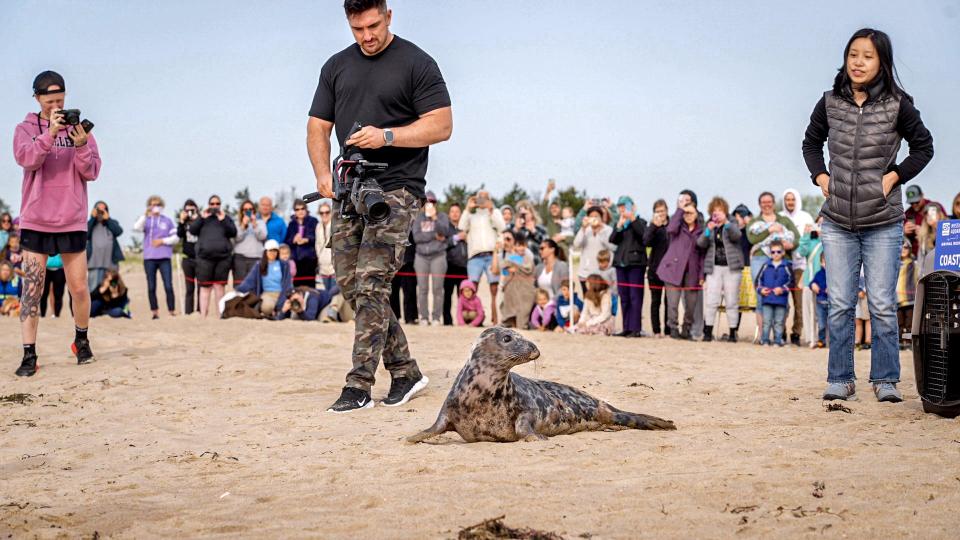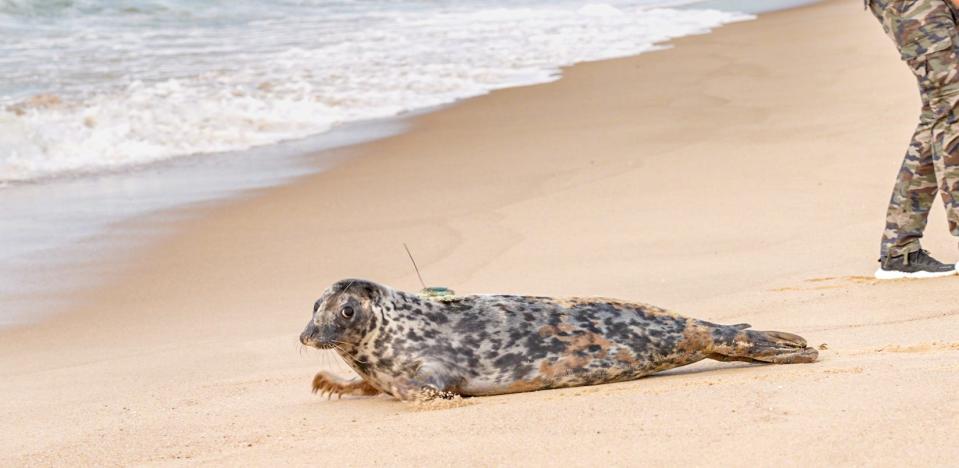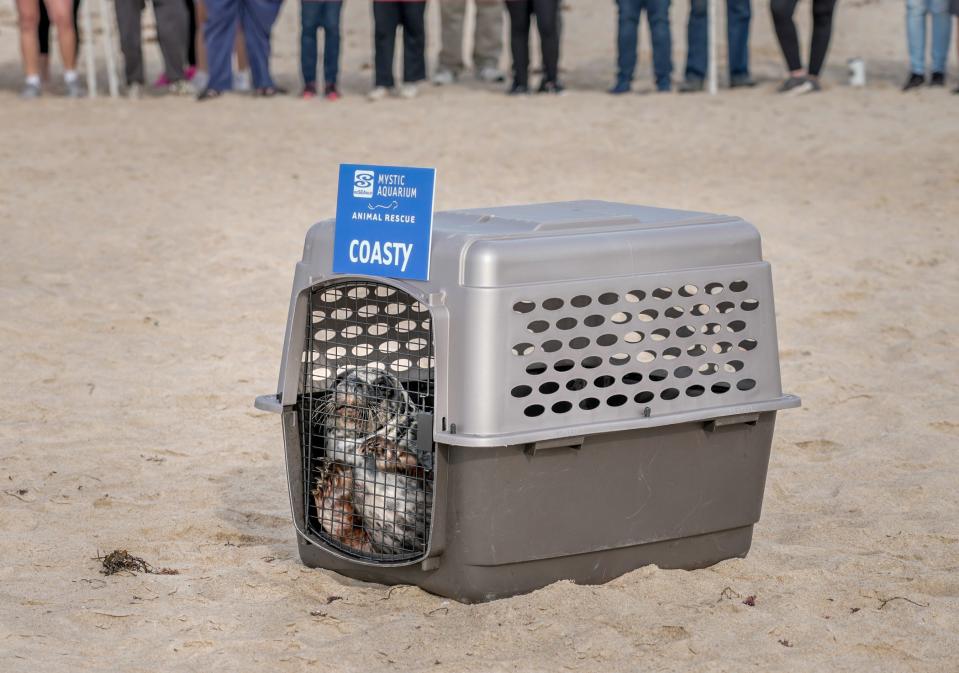Rehabilitated seal is returned to the water in Charlestown – why it's becoming more common
CHARLESTOWN – Nose pressed against the kennel grate, Coasty needed no prodding to get back in the water.
Fifty pounds heavier on Tuesday than when she was found emaciated on a Block Island beach in March, the rehabilitated grey seal flopped out of the crate onto the sand at Blue Shutters Beach and into the waves in one of the fastest releases Mystic Aquarium Animal Rescue Program volunteers remembered ever seeing.
That is saying something, because over the last five years, the program – which handles 1,000 miles of coastline in Rhode Island and Connecticut and on Fishers Island, New York – has become busier and busier in the Ocean State.

Calls about strandings are on the rise in Rhode Island
About 80% of the calls Mystic responds to are in Rhode Island, in part because it's open ocean off the shoreline, said Sarah Callan, the animal rescue program manager.
Since 2018, Rhode Island has seen a 47% increase in annual marine mammal reports, which includes whales, dolphins, turtles and seals.
Coasty was found on the beach near the Surf Hotel in Block Island on a cold night in late March, barely moving against the rocks.
RI General Assembly: As RI legislators near session's end, compromise on expensive proposals looks inevitable
"It looked like part of the rock," said Jules Craynock, one of the volunteers who responded to the call.
Coasty was malnourished, dehydrated, suffering from an infection and had significant hair loss, and it took only two volunteers to load the then-42-pound young seal into the carrier. With limited ferries running between Block Island and the mainland, the Coast Guard station in New London ended up making a special trip – which they also used as a training opportunity – to pick up the seal and bring it back to the aquarium for treatment.
Yes, the Coast Guard's assistance is how the seal came to be named Coasty, though it was also put to an online vote.
With the exception of a Coast Guard rescue, the story isn't that uncommon. Block Island in particular has become a hot spot since a population of seals started to live there year-round in 2018, Callan said, and it accounts for about 29% of Rhode Island calls.

"We're seeing a lot more animals in our coverage area in general, and I think a lot of it might have to do with food resources and the environment changes with climate change, and also just more people are out on the beaches," Callan said.
What the response is varies depending on the call. Some calls are for animals that have already died, in which case they're going out to collect field data and respond to callers. One dead seal generated 68 phone calls, which Callan said takes a lot of resources to call everyone back.
And then there are the cases like Coasty, who stayed at the aquarium for six weeks of care, which is a short visit compared with the two to three months that seals typically spend at the aquarium receiving care, Callan said.
Mystic Aquarium looking for state money to support it
With the rise in calls, so too comes a rise in costs.
"We're doing the best we can, but we're kind of at max capacity right now," Callan said. "We're getting a lot more calls. We have a lot more responses to go to and we just have very limited resources in order to make it all happen."
To that end, a bill has been introduced in the Rhode Island House of Representatives looking for $500,000 to establish a marine mammal rescue and response program and rapid response fund through the Department of Environmental Management to help pay the rescue, treatment and public-education costs.

"With the increasing number of marine mammal reports in Rhode Island, it's more important than ever that we have strong policies in place to support the field response and rehabilitation efforts of these animals," Meagan Seacor, vice president of external relations for Mystic Aquarium, said in a news release. "We hope the Rhode Island legislature will pass H 6359 to ensure that we can continue providing the best possible care to these animals while collecting valuable data."
A companion bill in the Senate has not been introduced yet. But state Sen. Victoria Gu was there for Coasty's release, helping to open the kennel.
Marine carpentry: High school wood shop class in RI is unique
"These efforts to rescue animals and to help people connect with these animals, it plays a large part in just people appreciating our environment," she said as the crowd to see off Coasty thinned. "It then translated to us investing in our environment."
How to report a marine animal stranding in Rhode Island
If you see a stranded or dead marine animal or sea turtle, call Mystic Aquarium's 24-hour hotline at 860-572-5955 Ext. 107 and expect a return call. Keep at least 150 feet away from the animal, even if it's dead, and do not attempt to touch or feed it.
This article originally appeared on The Providence Journal: Mystic Aquarium wants state money to rescue stranded seal. Here's why

